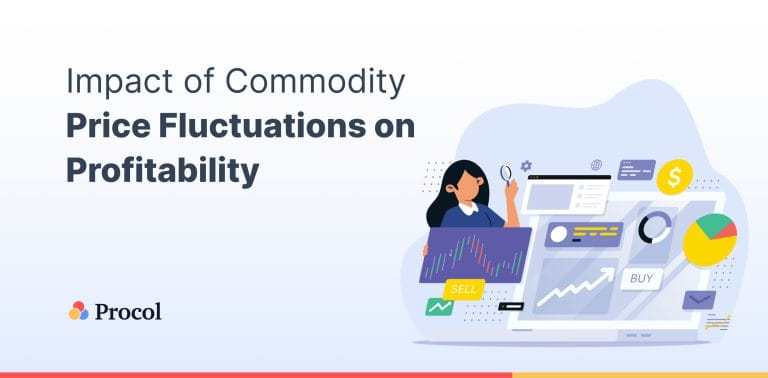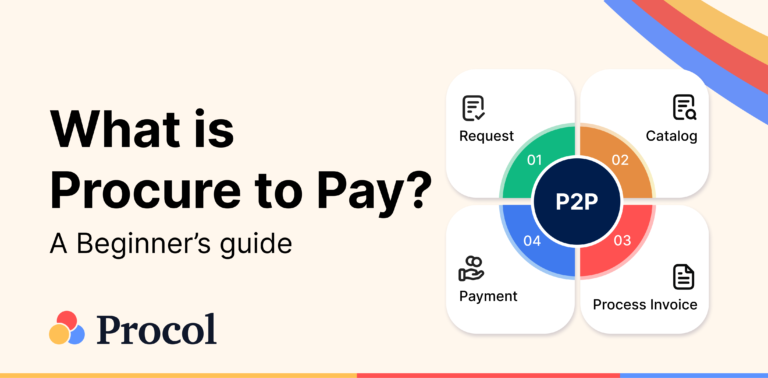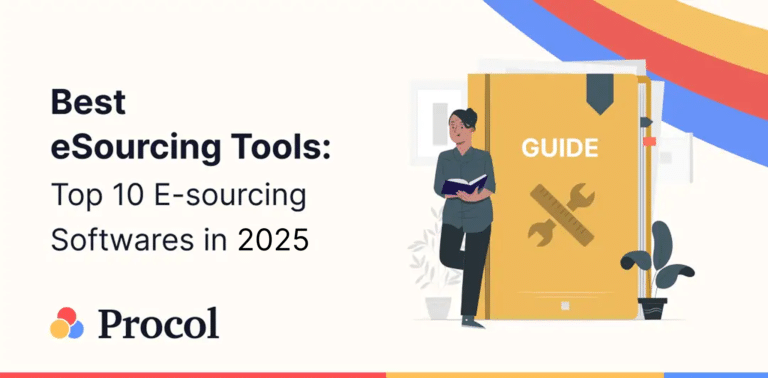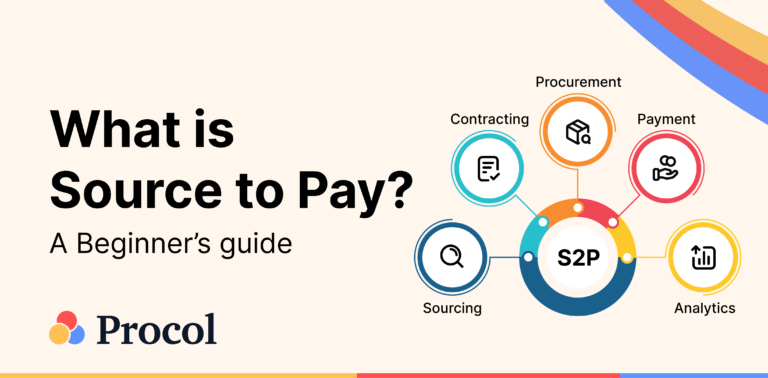Procol • April 15, 2025
Impact of Commodity Price Fluctuations on Profitability

Concerning procurement, commodities are any semi-processed or raw materials required for the production or process of a final product. These can include agro-based items, chemicals, oil and gas, minerals, etc. Recent price fluctuations in the commodity market have disrupted businesses worldwide.
Most companies demand the correct price of commodities, along with accurate demand forecasting. Commodity price fluctuations need a complex procurement solution and take time to master. Post-COVID pandemic, there have been considerable fluctuations in commodity prices due to rising geopolitical tensions and climatic issues. This has negatively impacted production costs, product costs, among others.
According to a report from Procurious, companies in 2024 are rethinking strategies for upcoming years. They predict the JIT (Just in Time) strategy to disappear. The pandemic opened our eyes to understand that procurement and supplies go hand in hand. Companies are thinking of maintaining adequate stock for immediate risk mitigation. The commodities market is no longer a stable one. The buyers are adapting to this, as well as the suppliers.
Commodity Price Risk
Price risk means managing the ever-increasing prices of commodities. Be it due to inflation, climatic conditions, or geopolitical scenarios, companies and governments are grappling with managing the prices of all kinds of commodities. Frequent changes in commodity prices makes it difficult for businesses to run and even more challenging to plan and invest for the future. These frequent fluctuations can affect the profitability and competitiveness of the business in the longer run.
Commodity price risk can be the financial problem associated with an item’s price performance. Price risk affects the item’s profitability and is out of the control of the entities, as the prices are mainly affected by a plethora of external factors.
The World Bank’s latest report shows that energy prices went up every month until August 2021, when they fell by almost 2.1%. The prices of agricultural commodities did not change, but the costs of fertilisers went up by nearly 3%. Prices of metals as well as minerals decreased by more than 4%.
Impact of Commodity Price Fluctuations on Profits
The massive volatility of prices affects traders, business leaders, and procurement officers differently. The price unrest hits the individuals depending on where they lie on the ladder.
A fall in commodity prices can lead to a decrease in the immediate sales revenue for the producers. It may also alter the production levels as the producers try to adjust them and get the best price in the market. The lower price also affects the company’s valuation, which might change according to the inventory size.
An increase in the price might increase the immediate sales revenue. But, it also increases the competition as other players start getting into the field to reap the profits from increased costs. The company’s profits might also take a hit if the company cannot pass on the increased prices to the next level and consumers. The lower yields might ultimately reduce the value of the organisation.
The ultimate responsibility for managing these price fluctuations is ultimately in the hands of procurement officers. Sometimes other departments play a part in risk mitigation. Since procurement has a better knowledge of the market sentiment and conditions
Price Volatility and Mitigation
As per the McKinsey report, an increase in geopolitical and climate predictability has contributed to the level of uncertainty in commodity output. This instead leads to volatility in the final prices. The volatility rates of various commodity prices on an annual basis range from 10 % to about 20 % throughout the last few years. Again the yearly prices keep changing to 70% of the average price.
If failed to mitigate the increasing prices, the situation can ultimately lead to passing on the extra cost to the consumers. Alternatively, the company will have to make a fresh Bill Of Materials (BOM). Mitigation means reducing the risks. Companies try out different strategies to mitigate the risks associated with price fluctuations. These include financial hedging, various suppliers to attract competitive prices, and demand management techniques.
Advantages of Adopting Procurement Software
Looking at the risks associated with commodity prices, CPOs and other supply chain officers are slowly shifting and embracing technology, rejecting traditional methods.
Using procurement software automates the purchase processes. This software runs complex algorithms that create and distribute the purchase among various players with minimum risk to the company. It also matches invoices and orders to avoid any unnecessary errors during acquisition. The software also optimises the workflow and automates most of the processes. This software falls mainly into two categories: cloud-based and on-premises. Today, most companies opt for cloud-based solutions due to a plethora of advantages.
1. Cost-effective
Cloud-based software generally offers a SaaS model of cost rather than a massive upfront cost. Monthly payment at a low cost means the software is accessible to small traders.
2. Mobility
A cloud-based system means communications and approvals can be done on the go, and one doesn’t need to be in the office or any geographical location.
3. Flexibility and Scalability
Vendors can increase their database and the quantum of services they avail of as the business grows.
4. Easy Recovery of Data
Most companies have backups of their data.in case of failure of equipment, you can have your data back from the backup servers.
Role of the CPO & Supply Chain Officers in Managing Price Fluctuations
To manage risk efficiently, managers must understand supplier’s critical commodities and the cost that drives the finished products. They should have a sound knowledge of the commodity market and be skilled in various techniques. POs should have knowledge of the marker price data history to forecast the trends well in advance. The procurement officers should also be proficient negotiators in case of negotiations involving supply contracts and financial risk management.
To Summarise
Commodity buyers need to know enough about market products and the factors that affect them. Also, one needs to understand the other requirements involved in any business. Many international requirements help understand how to mitigate the risks involved.
Procol is a comprehensive procurement software that can be customised to your needs, regardless of the size of your company. Schedule a demo to learn how to optimise procurement to improve efficiency and reduce TCO.
Explore more from Procol
Discover expert tips, how-to guides, industry insights, and the latest procurement trends.

What is Procure-to-pay (P2P)? An Ultimate Guide
Procure to pay is the process from procurement of materials needed...

Best eSourcing Tools: Top 10 eSourcing Software in 2025
Discover top 10 e-sourcing tools and esourcing platforms necessary for efficient...

What is Source-to-pay in 2025? An Ultimate Guide
Source to pay is the process of sourcing vendors to procure...



















